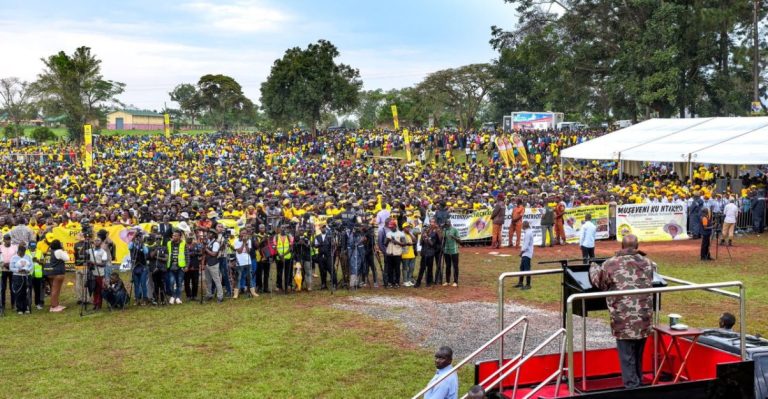President Yoweri Museveni has renewed pressure on Kabale District leaders to urgently secure 150 acres of land for the planned Kabale iron plant, saying the region risks losing a major industrial opportunity if fragmentation continues to delay progress. The call came during his manifesto presentation rally in Kabale Municipality, where he emphasized the strategic importance of the Kabale iron plant for Uganda’s next phase of industrial development.
Urgent Land Appeal for Kabale Iron Plant
Museveni told residents that government had already completed planning for the factory, which is expected to become a centerpiece of the 2026–2031 industrialisation agenda. He, however, warned that land shortages—caused mainly by extensive fragmentation in the Kigezi highlands—remain the final obstacle before construction can begin.
According to the president, the Kabale iron plant will process local iron ore into finished steel products. This shift from raw mineral export to value addition is expected to reduce Uganda’s steel import bill and supply high-demand sectors such as construction, manufacturing, and the emerging oil and gas industry.
Kabale’s Mineral Wealth and National Plans
Museveni noted that Kabale’s rich ore deposits give the district a rare chance to anchor a broader industrial town that could attract steelworks, machinery fabricators, and construction materials manufacturers. He said over 1.3 million Ugandans now work in factories countrywide and Kabale should position itself to benefit from similar opportunities.
Beyond industry, Museveni used the rally to defend the National Resistance Movement’s four decades of governance, pointing to peace in border areas like Kisoro and Kabale, expanded road networks, electricity rollout, and improved health and education infrastructure.
Land Use, Jobs and Wealth Creation
The president also warned against assuming that government is the main provider of jobs. With only 480,000 public sector roles available, he said Ugandans must embrace wealth creation through commercial farming, services, ICT, and factories. He encouraged households with small acreage to adopt intensive farming models that have boosted incomes in regions like Fort Portal and Bugangaizi West.
Museveni stressed that Kabale must rise to the challenge of providing the needed acreage for the Kabale iron plant, calling it a generational investment that would reshape the local economy for decades.

